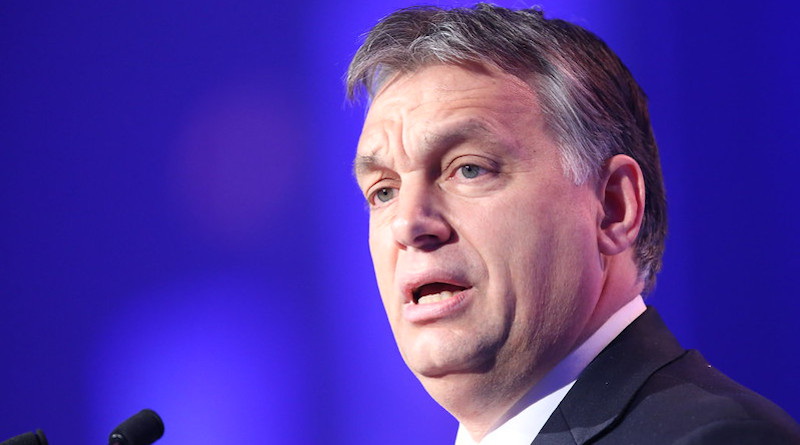Hungary PM Says Ukraine’s EU Membership ‘Not Realistic For Long, Long, Long Years’
By Alexander Faludy
Ukraine, NATO and the EU were the focus of the Hungarian prime minister’s annual press conference in Budapest. Thursday’s event lasted nearly two hours in front of a select group of local and foreign press.
On Ukraine, Viktor Orban claimed that his opposition to offering the country EU membership stemmed from a desire to help it via more immediate means. “If we would like to help Ukraine, we should provide something realistic,” he said.
He claimed that “membership is not realistic for long, long, long years,” given the country’s situation. Instead “a strategic partnership” between the EU and Ukraine would, he asserted, deliver results which were “immediate” and deliver benefits “most important to Ukrainians and support them in that way”.
He called the beginning of accession talks “a nice gesture of politics but in reality [it] does not help Ukrainians at all”. During last week’s European Council meeting, Orban intentionally left the room shortly before the vote on opening accession negotiations with Ukraine to avoid breaking the unanimity.
The Hungarian prime minister was challenged on his description of calling Russia’s invasion of Ukraine a “military operation” and not a war while sitting alongside Vladimir Putin at a summit in Beijing in November.
Defending his choice of words, an apparent echo of the Kremlin’s propaganda, Orban said he described it such because “Russia has not qualified what it is doing as a war” without general mobilisation. Asked if he thought it appropriate to use that form of words while sitting next to the president of the aggressor state, he retorted “I would be happy to use it now”.
Talking about Fidesz’s European party policy, Orban dismissed speculation his party would look to overcome its isolation in the European Parliament by joining the far-right Identity and Democracy grouping following the European elections in June 2024.
“Initial talks are taking place with the [European Conservatives and Reformists], led by the Italian Prime Minister [Georgia Meloni],” he told journalists. ECR includes ultra-conservative parties like Poland’s Law and Justice and Meloni’s Brothers of Italy. Both enjoy close ties to Fidesz, which has been politically homeless in Europe’s legislature after withdrawing from the moderate‐conservative European People’s Party (EPP) in March 2021.
Orban also spoke of ambitions to break the longstanding grand coalition between the EPP and Social Democrats (S + D) by leveraging an expected rise in support for far-right and eurosceptic parties. “We want to put pressure on the moderate right not to look to the left for cooperation, but to the right to create a new form of policy,” he said.
On Hungary’s continuing obstruction of Sweden’s NATO membership, Orban denied suggestions his stance stemmed from a desire to please the Turkish president, who has also been stalling on ratification. Recep Tayyip Erdogan visited Hungary on Monday, the second such visit this year.
“There is no Turkish-Hungarian agreement… the two countries are making decisions independently of each other,” Orban said. Rather, he claimed, resistance came not from the executive, who can only “offer promised dates” in the legislative timetable, but from within Fidesz’s parliamentary caucus, who “are not very much in favour of this decision”.
He recalled how Finland has joined other EU states in legal action against Hungary’s “Child Protection Law” (widely condemned as stigmatising the LGBT community) the day after Hungarian MPs had ratified the Nordic country’s NATO membership in 2022.

